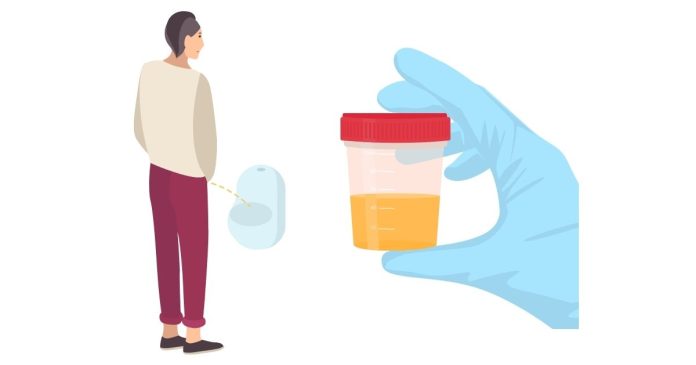The topic of human urine and its taste can evoke curiosity, revulsion, or confusion, as it’s not something people often think about or discuss openly. While the idea of tasting urine may sound unpleasant or strange, there are situations in which individuals have reported or even experimented with this practice. Whether out of curiosity, necessity, or as part of survival tactics, the question of what does human urine taste like can be examined from a biological, cultural, and practical perspective.
The Composition of Urine
To understand what human urine tastes like, it’s essential to first consider what urine is and how it is produced. Urine is a waste product that the body eliminates after processing fluids and nutrients. It is produced by the kidneys, which filter excess water, salts, urea, and other waste products from the bloodstream.
The composition of urine varies depending on a person’s hydration levels, diet, and health. Typically, human urine is made up of:
- Water: About 95% of urine is water.
- Urea: A waste product of protein metabolism.
- Electrolytes: Such as sodium, potassium, and chloride.
- Creatinine: A byproduct of muscle metabolism.
- Ammonia: A compound that helps neutralize excess acids in the body.
- Other substances: Small amounts of vitamins, medications, and other metabolic waste products.
These components play a significant role in how urine might taste, particularly when it comes to its concentration and the presence of specific compounds.
What Does Urine Taste Like?
Human urine is generally described as having a slightly salty or bitter taste, and the exact flavor can vary depending on several factors, including diet, hydration levels, and health conditions. Below are some common descriptions of the taste of urine:
- Salty or Bitter: Due to the presence of salts and electrolytes like sodium and potassium, urine can have a salty or mildly bitter taste. This taste is more pronounced when a person is dehydrated, as the concentration of waste products in the urine increases.
- Sweet: In certain cases, particularly for individuals with uncontrolled diabetes, urine can take on a sweet taste due to the presence of excess glucose in the urine. This condition is known as “glucosuria” and can occur when blood sugar levels are abnormally high.
- Metallic: Some people report a metallic or tangy taste, which may be due to the presence of compounds like creatinine or certain medications. These compounds can give urine a more distinctive, sharper flavor.
- Strong or Pungent: When urine is highly concentrated, it can have a strong, ammonia-like odor and taste. This is especially noticeable when a person is dehydrated, as the kidneys retain more water and produce a more concentrated urine with higher levels of ammonia.
- Acidic: Urine is naturally acidic, with a pH typically ranging from 4.5 to 8.0. The acidic nature can contribute to a sour or tart taste, especially if the individual has consumed acidic foods or beverages.
Factors That Influence the Taste of Urine
Several factors can influence the taste of urine, including:
- Hydration Levels: When a person is well-hydrated, urine tends to be pale yellow or clear, and the taste is much less concentrated. In contrast, when someone is dehydrated, the urine becomes darker and more concentrated, with stronger tastes and odors due to the higher concentration of waste products like urea and ammonia.
- Diet: The foods you eat can significantly affect the taste of urine. For instance:
- Asparagus: Known to create a strong, pungent odor and taste due to certain sulfur compounds.
- Coffee: Can make urine more acidic, potentially influencing the taste.
- Garlic: Known to impart a distinctive flavor to urine because of the compounds it releases when metabolized.
- Spices: Certain spices, like curry, can cause urine to have a more intense or unusual taste.
- Medications: Some medications can alter the composition of urine and, consequently, its taste. For example, antibiotics, vitamins, or chemotherapy drugs may make urine taste more bitter or metallic.
- Health Conditions: Certain medical conditions can change the way urine tastes. For example:
- Diabetes: Uncontrolled diabetes can lead to sweet-tasting urine due to high glucose levels.
- Urinary Tract Infections (UTIs): A UTI may cause urine to have a foul or strong odor, which could affect its taste.
- Kidney or Liver Disease: Conditions that affect the kidneys or liver can alter the composition of urine, sometimes making it more concentrated or having an unusual taste.
Why Would Someone Taste Their Urine?
While tasting urine may seem like an odd or taboo action, there are a few reasons why someone might do so:
- Survival Situations: In extreme cases, such as being stranded without access to clean drinking water, some survivalists may resort to tasting or even drinking their urine. However, it’s important to note that drinking urine is not generally recommended in survival situations, as it can lead to further dehydration and introduce waste products back into the body.
- Medical Testing: Historically, ancient cultures sometimes used urine as a diagnostic tool in medicine. While modern medicine no longer uses this method, tasting urine was once thought to reveal information about a person’s health, such as the presence of diseases like diabetes.
- Curiosity: In some cases, individuals might simply be curious about the taste of urine, particularly in non-survival contexts. However, this is a rare practice and not one commonly advised or encouraged.



